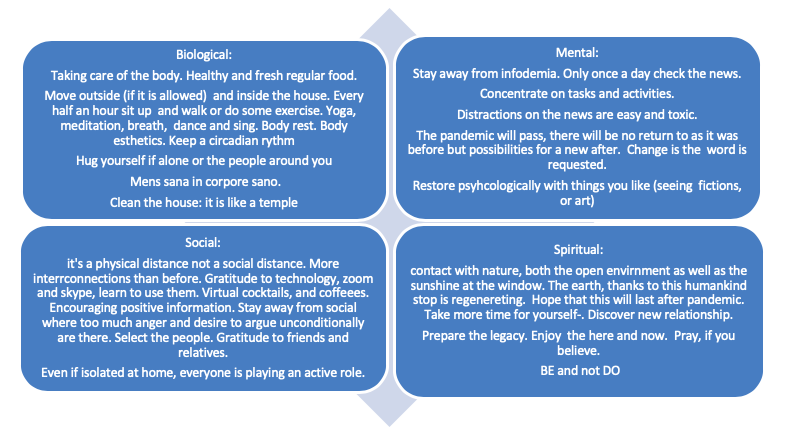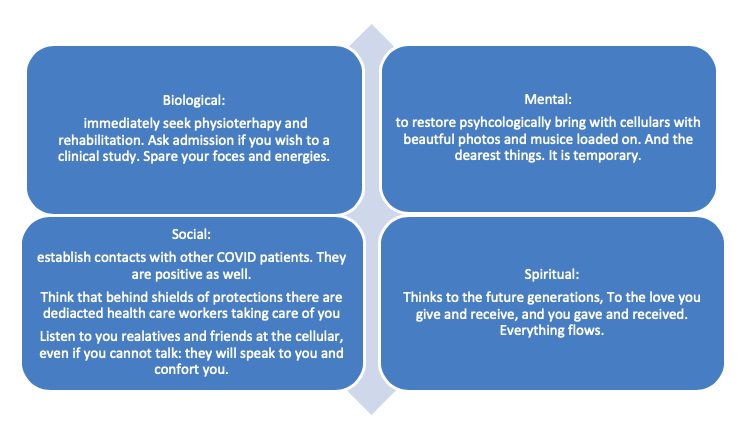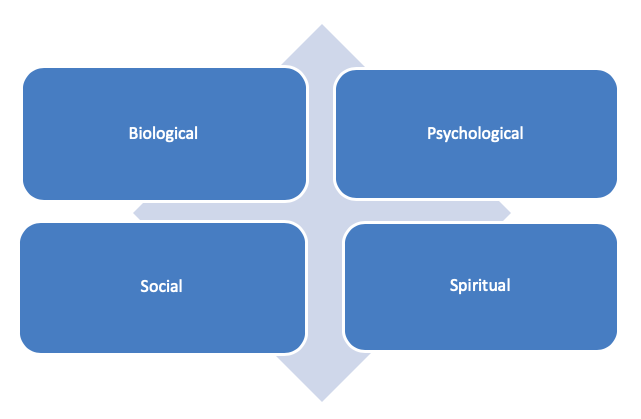Reading the different contributes for the pillars of the biological, psychological, social and spiritual model to humanise isolation and care, the first sentiment is gratitude towards the task force which has given wisdom and sustainable resources to all the people willing to find some little tips and not merely rhetoric encouragement.
The contributes come from countries highly hit by the COVID-19 like the UK (1 – 2 – 3), USA (Boston, Massachusetts), Spain, Italy and two other countries hopefully not so much affected by the pandemic, Portugal and Canada (Montreal).
The request was to use a matrix – the biological, psychological, social and spiritual model – to overcome the reductionism of the biomedical model to promote wellbeing. It was fascinating to see that many “mental” tips were as well put in the “biological” part since for these experts, there is an interconnection between body and mind. As for the spiritual part, some of our experts, who declared themselves as non-believers, indicated the importance of social relations. The four dimensions are indeed interrelated, and it is challenging to define clear borders among the four determinants. It is like an osmotic process, with no walls among the boundaries but biological membranes, where the reflections do belong, according also the reader’s eyes to possible different sectors.
As a map for the readers, here we propose two tables of synthesis of the suggestions and lived experiences—the first concerns the Staying at home, the second one the Staying at the Hospital.
In the end, you will find your possibility to write down your pillars for wellbeing.
Table 1 – Staying at home

Table 2 – At the hospital

Table 3 – Would you like to try to fill in the bio-psycho-social-model with your pillars?

